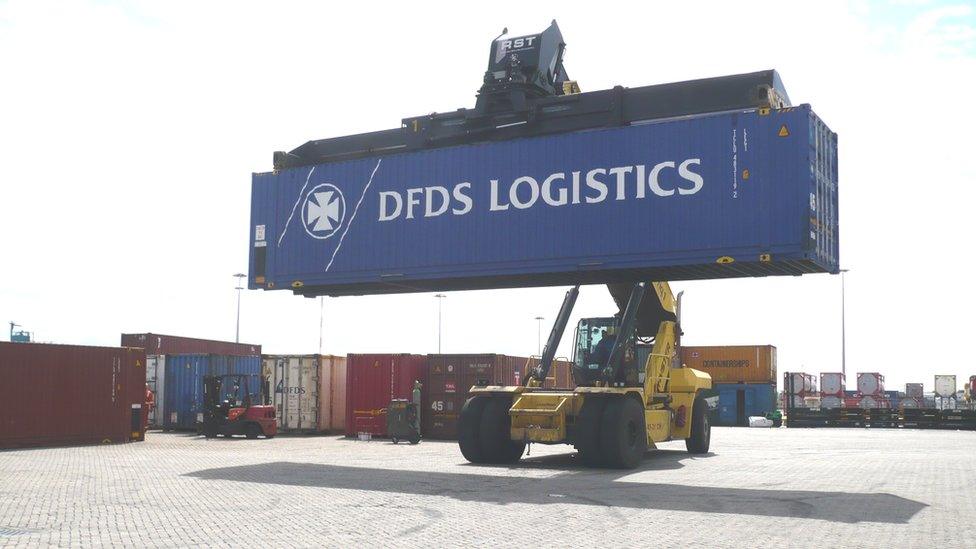Food traders say Brexit impact 'could get worse'
- Published
- comments
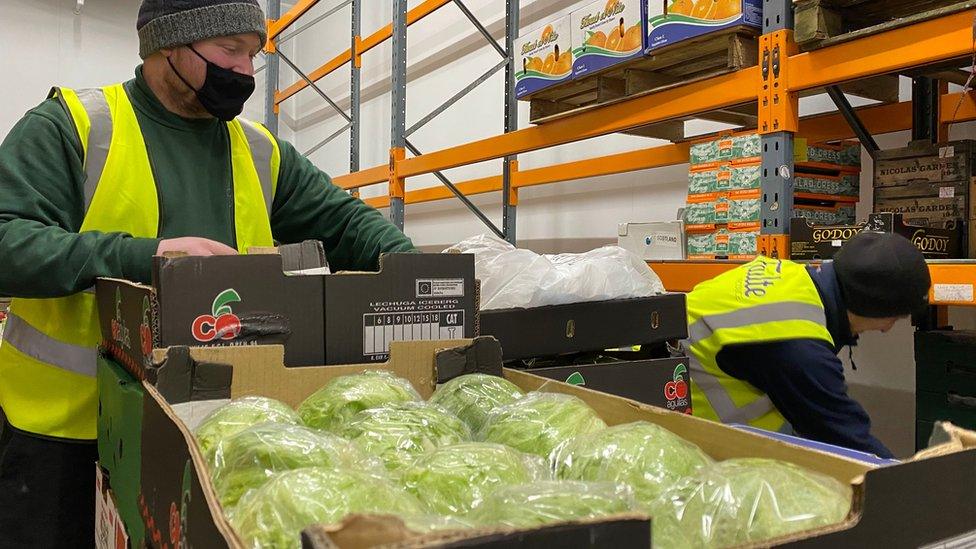
New rules on importing from Europe come into force in April
Scotland's food and drink industry is warning of price rises and potential shortages when new Brexit rules on imports come into force in April.
The UK's departure from the European Union has already led to a forest of new paperwork for firms exporting to the continent.
According to James Withers, of trade body Scotland Food and Drink, the impact has been "horrendous".
He says the seafood sector alone was losing "about a million pounds a day".
"There's no sign of any improvement soon," Mr Withers says. "In fact [there are] many signs things could get worse."
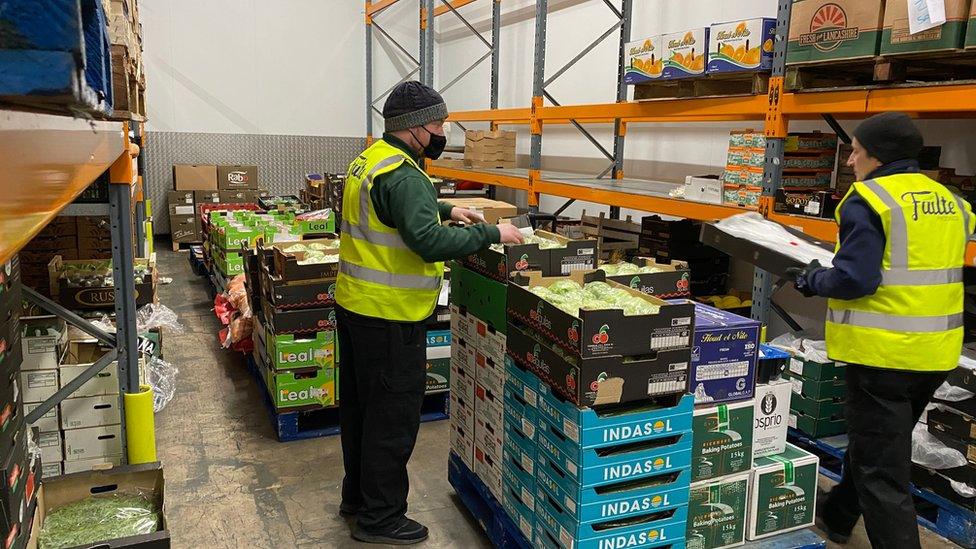
The UK government said it was working closely with businesses to make sure they could "take advantage of the opportunities" that leaving the European Union brings.
It said businesses were adjusting well to the new trade rules, which are being phased in over the next few months, and it was offering extensive advice and support.
When Great Britain finally left the single market on Hogmanay the EU insisted on the immediate introduction of controls on exports to the continent but the UK government opted to wait until 1 April to introduce similar checks on imports.
Mr Withers says: "Those checks, when they're put in place, could also make things slow, more expensive and a lot more complex for EU businesses who need to sell products into businesses here.
"And that's a big issue for supermarkets and will be a big issue for many food companies who get ingredients from Europe."
One of those companies is Charles Stamper Fruit and Veg in Edinburgh which sources much of its produce from Spain and the Netherlands.

Louise Stamper's firm supplies fruit and veg to the hospitality industry, schools and nursing homes
Managing director Louise Stamper says: "One thing for certain is prices will go up.
"It's going to just become very expensive to go out for a meal."
Ms Stamper founded the firm 32 years ago with her husband, Charles. They normally supply fresh fruit, vegetables and other produce to the hospitality industry, schools and nursing homes.
Like many businesses they saw a heavy impact last year due to the Covid-19 restrictions and lockdowns.
Ms Stamper says the first lockdown in March last year saw them lose all but a handful of their customers.
Switching to home deliveries helped but they didn't come close to making up for the lost trade. A year ago the firm employed 30 people. Now it has 15 staff.
Making matters worse, Ms Stamper says imports are 20% more expensive than they were last winter, a rise which she attributes in part to Brexit-related border disruption.
Mr Withers reckons that the enforced closure of hospitality, entertainment and tourism due to Covid cost food and drink firms £3bn in lost sales in 2020, in a sector worth £15bn annually to the country's economy, including £6bn of exports.
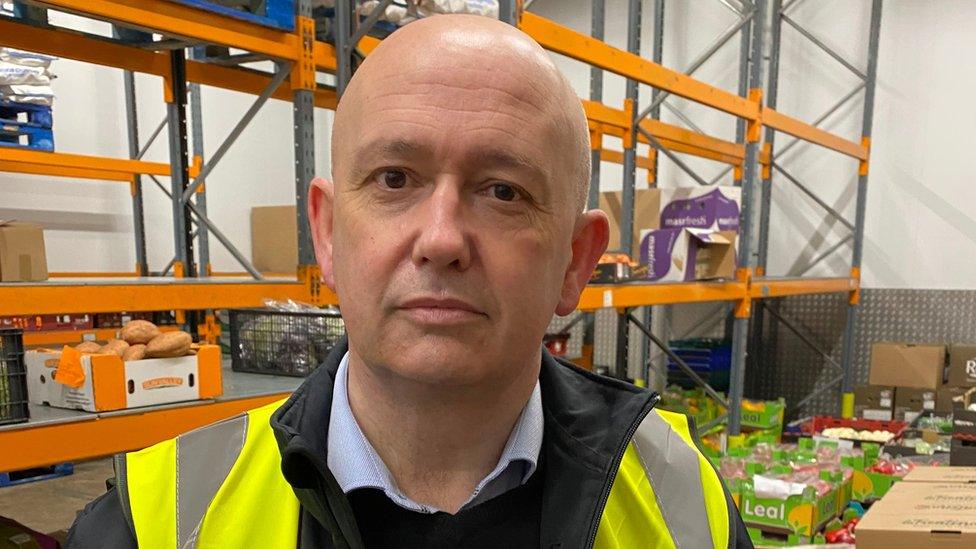
Compared to the effects of the pandemic, Jim Cummiskey views the long-term impact of leaving the EU as nothing more than an irritation
Jim Cummiskey, chief executive of food wholesaler Failte Group, says the impact of the pandemic has been massive.
"To sum up the hospitality industry in one word: horrendous," he says.
The Glasgow giant is based beside a huge food market at Blochairn in the north of the city and has three arms: produce, food service and wholesale.
"We've paid off probably 17 staff," says Mr Cummiskey, glancing around at empty shelves in a vast refrigerated warehouse which he says would usually be crammed with fresh produce.
"People just seem to think you can switch the lights back on and everything's going to be back to normal. That's not going to happen in this industry. It's going to take years of recovery," he says.
Compared to the effects of the pandemic Mr Cummiskey views the long-term impact of leaving the EU as nothing more than an irritation.
Bad weather rather than Brexit is to blame for seasonal price rises on continental goods, he argues.
"The UK will diversify," insists Mr Cummiskey. "We always have and we always will. So we'll store more Scottish product when it's in season and we'll store more UK product when it's in season."

Wilma Finlay and her husband run an organic dairy farm near Gatehouse of Fleet in Galloway
Some businesses which export to the EU are not so relaxed.
Wilma Finlay and her husband David run an organic dairy farm near Gatehouse of Fleet in Galloway, famous for its ice cream and visitor centre.
When the nation was ordered to stay at home in March last year, and again this winter, tourism and ice cream sales to restaurants collapsed.
The impact on turnover was "massive" says Ms Finlay, "absolutely massive".
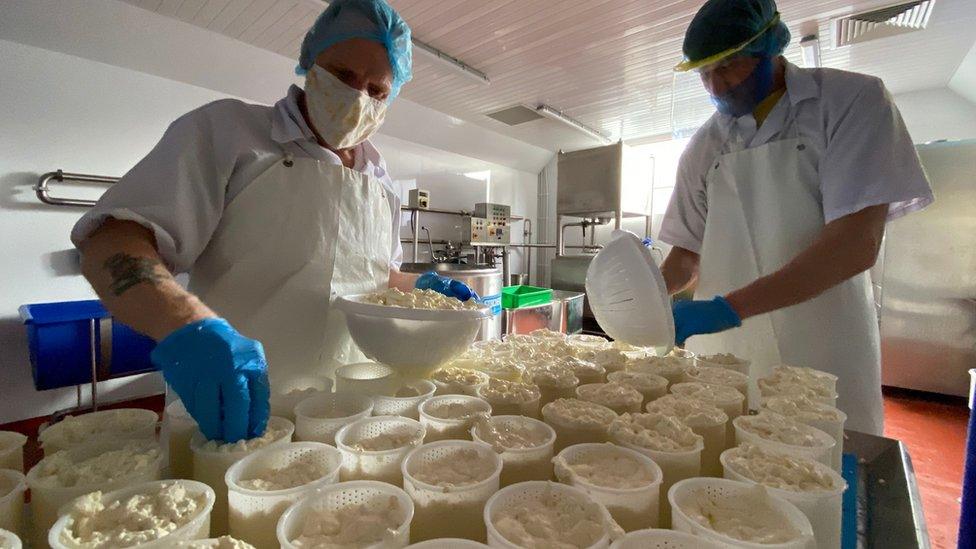
Ms Finlay's dairy farm has branched out into cheese
Luckily the farm had recently branched out into the production of cheese with the creation of a company called The Ethical Dairy.
"Home delivery has just taken off," she explains.
"It went from 30 orders a week to 300 orders a week almost overnight."
That's nothing like enough to offset the farm's ice cream and tourism losses but if Scotland were still in the EU, says Ms Finlay, she would now be taking the cheese enterprise to the next stage by ramping up exports to the continent.
The additional costs of Brexit have put paid to that ambition. They amount, she calculates, to £45 in time and paperwork on every £35 order. That's before she has even considered the cost of production or postage.
"It's just a non-starter," says Ms Finlay who describes the impact of Brexit as an "annoyance" and the pandemic as "devastating".
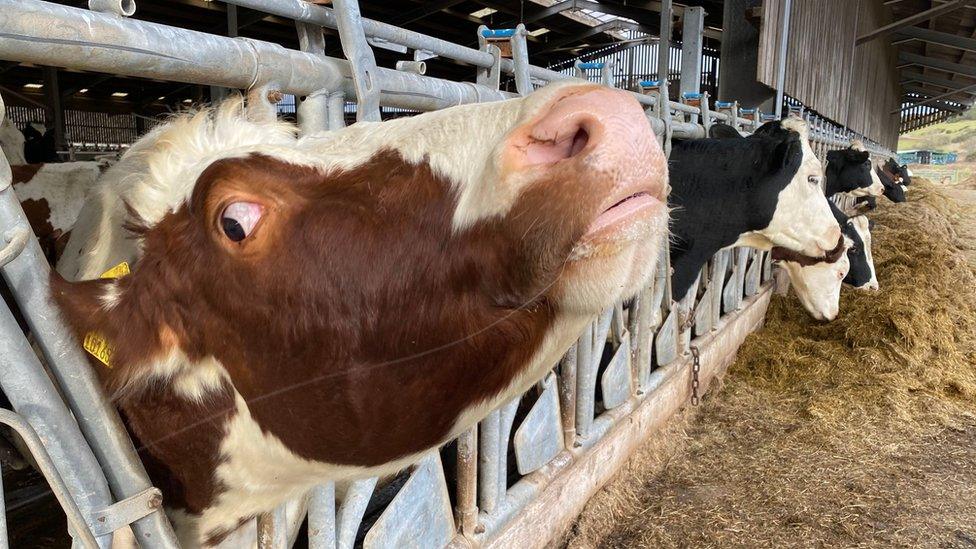
Ms Finlay's dairy farm has customers in Northern Ireland which they now require EU paperwork to supply
What really surprised the Finlays though was the realisation that the EU-mandated checks and paperwork would also apply to trade with Northern Ireland where they had developed a number of loyal customers.
The reason lies in the deal formalising the UK's exit from the EU which allowed Northern Ireland to remain in the single market to prevent the potentially incendiary return of an Irish land border.
Instead there is now an Irish Sea border: dividing the UK, outraging unionists and leading to shortages of some goods in Northern Ireland.
"We hadn't seen that [Brexit] would also close the route to Northern Ireland because we're actually physically nearer to Belfast than we are to Glasgow and Edinburgh," says Ms Finlay who says she was deeply disappointed to be forced to stop supplying her Northern Irish customers.
The disruption of commerce is also have an effect on the constitutional debate.
In the 2016 referendum Brexit was supported by majorities of voters in England and Wales - and therefore by the UK overall - but it was opposed by 62% of people who cast ballots in Scotland and 56% in Northern Ireland.
Since then support for Scottish independence has risen, with more than 20 polls in a row indicating a majority in favour of Scotland going it alone, and there has also been renewed discussion about the possibility of a referendum - known as a border poll - on Irish reunification.
For now though a more pressing concern for business is the effect of the new checks and charges on imports from the EU to Britain due to come into effect on 1 April and whether they will lead to the shortages in Northern Ireland being replicated elsewhere in the UK?

James Withers says dealing with the EU will get more complex, slower and more expensive
Mr Withers of Scotland Food and Drink is concerned.
"At the moment supply chains are pretty robust," he says. "The big supermarkets know what they are doing but if the lessons of the first few weeks in trying to get products out of the country are replicated for products coming into the country, we could find a real challenge."
Fresh fruit and vegetables are particularly vulnerable, he warns, especially when they are out of season in Scotland.
He says: "What I do know is we sell £1.2bn of Scottish food into the European Union every year and that has got an awful lot more difficult, an awful lot more expensive and an awful lot slower."
- Published7 February 2021
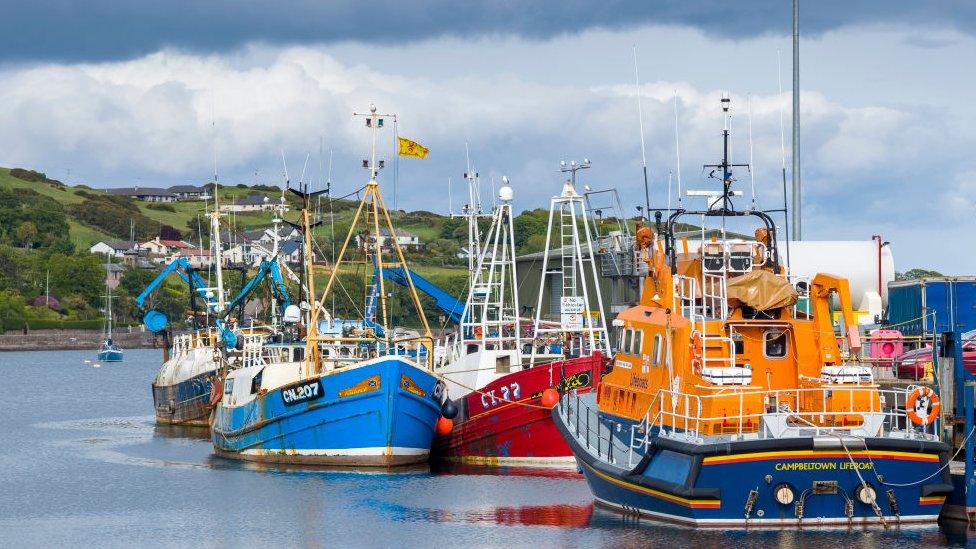
- Published4 February 2021
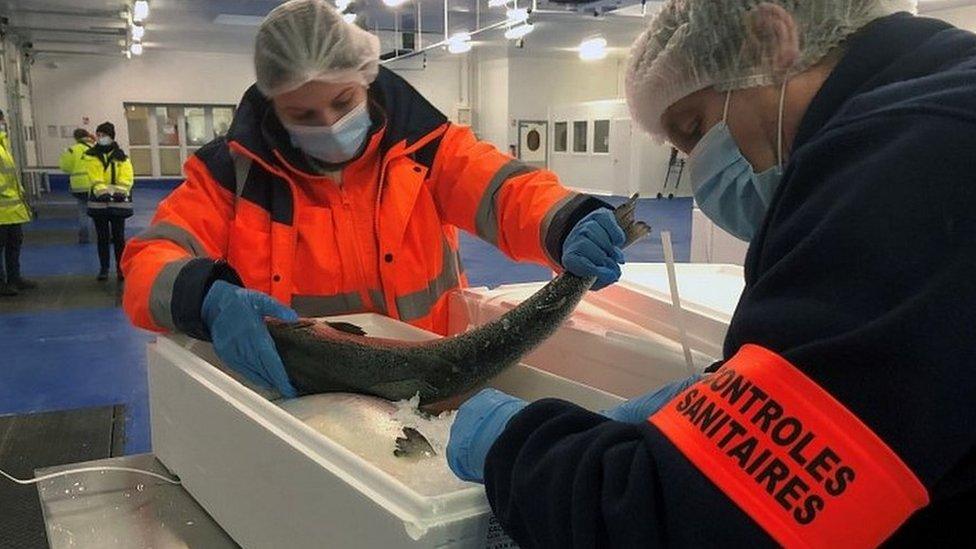
- Published18 January 2021

- Published11 January 2021
